Israeli’s Bennett Backs Bahrain Against Iran's ‘Bloodthirsty Terrorists’
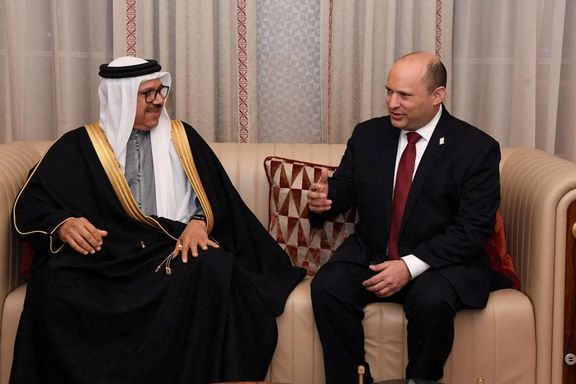
Israeli Prime Minister Naftali Bennett who is on a landmark trip to Bahrain has called efforts to revive the 2015 Iran nuclear deal a “strategic mistake.”

Israeli Prime Minister Naftali Bennett who is on a landmark trip to Bahrain has called efforts to revive the 2015 Iran nuclear deal a “strategic mistake.”
Bennett arrived in Manama Monday in the highest-level visit since the countries established diplomatic relations in late 2020 under the United States-brokered ‘Abraham Accords’, seen by Palestinians as a betrayal of their aspirations to statehood.
In an interview with Bahraini daily Al-Ayyam published Tuesday, Bennett said Israel and its “allies” faced "great security challenges that stem from the same source – the Islamic Republic of Iran.”
“We fight Iran and its proxies every day, and we will help our friends in strengthening peace, security and stability”, Bennett said before meeting King Hamad bin Isa Al Khalifa, and crown prince and prime minister, Salman bin Hamad Al Khalifa.
“Iran seeks to destroy moderate states that care for the welfare of their people... replacing them with bloodthirsty terrorist groups,” Bennett said.
Earlier this month Israel and Bahrain signed a security agreement, Israel's first with a Gulf nation, and Israeli contractors advise Bahraini security forces. The regime put down protests in 2011 with Saudi help.
The Bahraini opposition Wifaq party last month reiterated condemnation of Saudi “aggression” in the Yemen war, where Iran has backed opposing Ansar Allah forces.
“Over recent years, we have strengthened our military cooperation with countries in the region, whether Arab or non-Arab,” Bennett said.
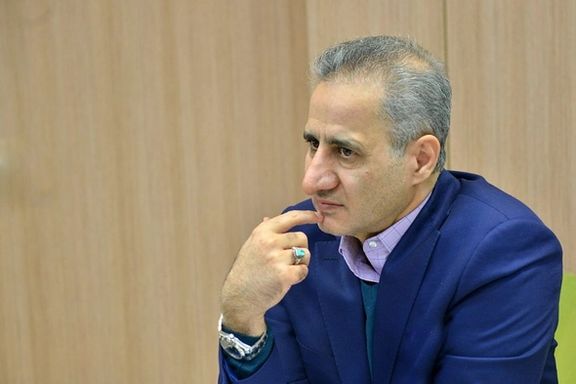
Emigration of professionals, tradesmen and manufacturers from Iran has increased due to economic and political uncertainty, a top businessman has warned.
Technicians, plumbers, cooks, electricians and experts in various fields are trying to find jobs abroad. Those who cannot emigrate to Europe and the Americas, due to financial or visa limitations, choose Turkey or the United Arab Emirates as their favorite destination.
Millions of mostly educated and professional Iranians have left the country for good since the 1979 revolution and the trend has continued for the past four decades, but a new economic crisis and uncertainty since 2018 has encouraged more people to leave.
Hamid Hosseini, a member of Iran’s chamber of commerce, told Khabar Online website on Monday that he believes all kinds of professionals are migrating, essentially because they have little hope of a better life in the future.
Hosseini, who is a top business operative in the petrochemicals sector, said what he hears from emigration agencies is that the number of people seeking services has multiplied in recent months. While in the past mostly top professionals were looking to find jobs and residence permits abroad, now tradesmen and ordinary professionals are seeking to emigrate.
“Most of these people say they will have higher incomes
abroad and a more comfortable life,” Hosseini said. He emphasized that the phrase “a comfortable life” is an important window into the thinking of prospective emigrants. It shows, he said, that people are apprehensive about the future of the country. “They are tired and concerned,” he argued.
Wages and incomes have precipitously dropped in Iran since 2018 when the United States withdrew from the 2015 nuclear agreement and imposed sanctions, prompting high, double-digit inflation.
But the economic crisis, although important, is not the only factor in nurturing pessimism. The clerical political system has become less tolerant and more erratic and unpredictable in recent years as it has faced more opposition. Younger people are tired of waiting for a bit of loosening of religious restrictions and getting a fair deal in state-run economy controlled by insiders.
Hosseini argued that neighboring countries such as Turkey and the United Arab Emirates have plans to attract qualified professionals.
Tens of thousands of high middle-class Iranians have easily bought homes in Turkey, received residence permits and moved part of their capital to the neighboring country. Iranians are at the top of foreign real estate buyers in Turkey.
But Hosseini singled out the UAE as a new attractive destination for private Iranian companies because its government has a serious plan to attract industrial manufacturers. He pointed out that the UAE is establishing an industrial zone, where investors get free land and attractive bank loans to set up business.
Hosseini was referring to an ambitious plan UAE announced in March 2021 to expand its manufacturing sector, as diversification of its economy from an energy exporter and a commercial hub also to a regional magnet for industry. The plan is to triple annual manufacturing output from around $30 billion to more than $80 billion by 2031.
A new factor encouraging companies to leave is a plan by the parliament to impose taxes on firms operating in Iran's free economic zones. Saeed Mohammad, the president's coordinator for free zones, warned Tuesday that this would be devastating for the economy as many companies would choose incentives offered by neighboring countries.
Hosseini warned that Iran can lose a lot of talent, knowhow and capital to the UAE. Asked if a nuclear agreement and lifting of US sanctions can help the situation, he said “society needs peace and tranquility” not constant interference by the government. He singled out internet restrictions in Iran and erratic laws that are often contradictory and make life for the ordinary citizen unpredictable.
He added, “Problems will be solved when we adopt moderation…which will gradually strengthen hope for the future.”
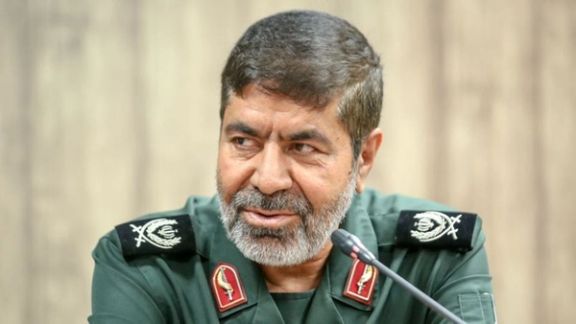
Commenting on corruption involving the Revolutionary Guards and Tehran Municipality, the IRGC spokesman denied Ghasem Soleimani had any role in the dealings.
Ramazan Sharif was commenting on a story and a 50-minute recording published by the United States-funded Radio Farda based on an audio recording of a conversation in 2018 between former Guards (IRGC) commander Mohammad-Ali Jafari and his Economic Affairs Deputy Sadegh Zolghadr.
Sharif said that the case cited in the recording had been dealt with, presumably referring to the judiciary announcing last year that four defendants had been sentenced to two to 30 years in prison over embezzlement in the case. Human-rights campaigner Emadeddin Baghi has pointed out that the tape had been published on a Telegram channel two years ago. At the time it went unnoticed by media and then the channel closed down and the recording disappeared.
In the audio file, Jafari tells Zolghadr that Soleimani, who was killed by a United States drone attack in Baghdad in 2020, knew about 80,000 billion rials (around $3 billion at the time) held by Tehran municipality and Yas Holding, a firm controlled by the IRGC's Cooperatives Foundation, and had also been aware of corruption allegations before any public indictment and trials.
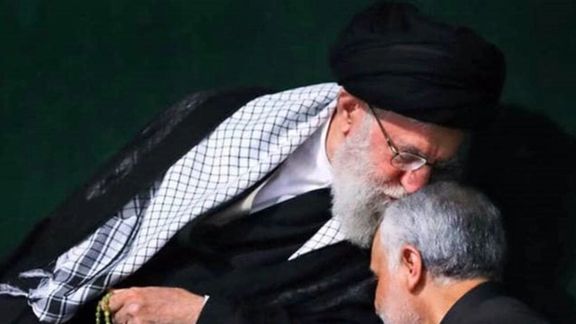
The tape even reveals that Soleimani was upset about the action taken by Jafari and Zolghadr against those who had embezzled the money and spoke to Supreme Leader Ali Khamenei about it.
The funds had been due to reach the Qods (Quds) Force, the IRGC extraterritorial arm, which Soleimani commanded. In the recording, Zolghadr says that Ali Khamenei, Iran’s Supreme Leader, had ordered 90 percent of the money, earned by Yas Holding, to be used to finance the Qods Force with the remainder going to the IRGC for general needs.
In a note Monday, Hossein Shariatmadari, chief editor of the flagship hardliner Kayhan daily, defended Soleimani and others – including Tehran mayor Mohammad Bagher Ghalibaf and the head of IRGC intelligence Hossein Taeb – mentioned in the recording. Most other hardliner media such as the IRGC-linked Javan newspaper are still completely silent about the highly controversial contents of the audio recording but in a note Monday
‘Cleverly lured’
"It was said that the Qods Force was supposed to have a share of the revenues of the said firm,” he noted. “What is wrong or dirty about this?" He claimed the IRGC and judiciary had shown their integrity by prosecuting corrupt individuals.
Shariatmadari also defended Mohammad Bagher Ghalibaf, Tehran mayor at the time, saying he had "cleverly lured" his ex-deputy, Isa Sharif, back to Iran from Canada so he could be prosecuted.
Mahmoud Abbaszadeh Meshkini, spokesman for parliament’s national security committee, Saturday detected “psychological war” in Radio Farda’s publication of the recording. “The ill-wishers have failed to achieve what they sought and use as an excuse to tarnish the IRGC’s image.”
But critics of the Islamic Republic, and specially the economic and political power held by the IRGC were quick to show the recording as proof of deep corruption, that Soleimani and other senior figures were aware of.
The problem for the regime is that in its infinite lack of transparency, once such a scandal reveals itself, all officials involved fall under suspicion. There is no proof in the recording that Soleimani personally benefitted from the corruption, but critics have a right to question everyone's role, since there is no free media in the country or independent courts to investigate the matter.
Former reformist interior minister Mostafa Tajzadeh tweeted Saturday that the case showed a conflict of interest within the military and political establishment. "Can you see the outcome of putting weapons, intelligence, money, and media [in the same hands]?” he wrote. “Is this anything other than the military's control over diplomacy and economy? Is there anyone to hold to account? Is there anyone who dares to prosecute?"
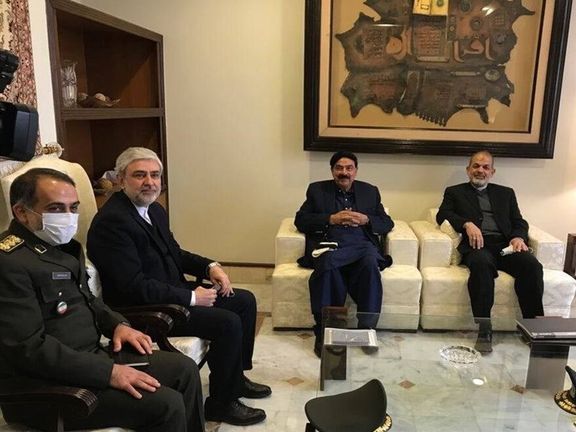
Iran and Pakistan have established a taskforce to promote cooperation in border security and the exchange of prisoners.
Iranian Interior Minister Ahmad Vahidi arrived in Islamabad for a one-day visit at the head of a nine-member delegation Monday and was welcomed by Pakistani counterpart Sheikh Rasheed Ahmad at the Noor Khan airbase, Rawalpindi.
Vahidi also met with Prime Minister Imran Khan, army chief General Qamar Javed Bajwa, and Interior Ministry Secretary Yousaf Naseem Khokhar. Vahidi and Khan reportedly backed the construction of border markets and improved transport infrastructure – including roads and rail – to boost trade.
Vahid’s meeting with Bajwa, the army chief, and Pakistani security officials was joined by Iranian ambassador Mohammad Ali Hosseini, General Ahmad Ali Goudarzi, commander of the Iranian Border Guards.
Tehran and Islamabad last October agreed to arrangements for exchanging prisoners, apparently to allow repatriation of those serving sentences abroad. But the high-level attendees at the meetings may reflect concern over the Iran-Pakistan border sitting on growing human and drug trafficking out of Afghanistan.
Co-operation between the two sides has been stymied by Iran’s suspicion that Pakistan, either deliberately or though neglect, has served as a refuge for Baluchi groups that have carried out violent attacks inside Iran and by Tehran’s suspicion of Pakistan’s relationship with militant Sunni factions including the Taliban in Afghanistan. Vahidi's visit took place a week after Saudi Interior Minister Prince Abdulaziz bin Saud bin Nayef visited Pakistan.
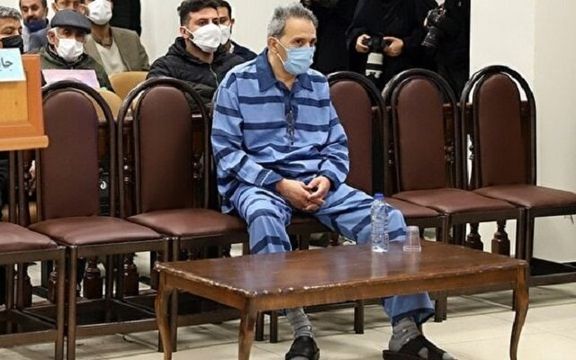
Several rights activists have called on Germany to act to prevent the imminent execution of Iranian-German political activist Jamshid Sharmahd.
His daughter Ghazaleh Sharmahd, along with several other rights activists, wrote a letter to German Foreign Minister Annalena Baerbock asking her to form a crisis management team and put pressure on the Islamic Republic to stop his killing.
Journalists and civil society activists Masih Alinejad, Jamshid Barzegar, Nazanin Bonyadi, Barry Rosen and Richard Ratcliffe were among the other signatories of the letter.
“It is of the utmost importance that the German federal government act immediately to prevent the planned state assassination of Mr Sharmahd…We urge you to take immediate, serious and sustained action to save the life of the 66-year-old German citizen and his family from this horrific act”, read the letter.
He appeared in a court in Tehran earlier this month and was charged with “spreading corruption on earth”. He could face execution if convicted on this charge, which campaigners say is often used against opponents of the government.
Sharmahd, the director of Tondar opposition group, has been held in solitary confinement for 555 days, and during this time, he has been denied an independent attorney and fair legal procedures.
The news of the Sharmehd’s kidnapping in Dubai and his transfer to Tehran by Islamic Republic agents was first released in August 2020. The Islamic Republic has alleged that Sharmahd was involved in a 2008 bombing on a mosque in Shiraz that killed 14 people and wounded 200 more, something he and his family vehemently deny.

Israeli Prime Minister Naftali Bennett will travel to Bahrain Monday in the highest-level visit since the countries established relations in 2020 in part on shared worries about Iran.
Bennett will meet with Bahraini Crown Prince and Prime Minister Salman bin Hamad al-Khalifa, his office said.
"The leaders will discuss additional ways to strengthen bilateral ties...especially the advancement of diplomatic and economic issues, with an emphasis on technology and innovation," it said in a statement.
The two-day trip to Bahrain, home to the US Navy's Gulf headquarters, comes amid heightened tensions after missile attacks on neighboring United Arab Emirates by Yemen's Iran-aligned Houthis. Israel also normalized ties with UAE in 2020.
Israel has stepped up cooperation with the Gulf states. Manama hosted Israel's defense minister on Feb. 2 and has said an Israeli military officer will be posted in Bahrain as part of an international coalition.
On the commercial front, Israel has reported rising trade with Bahrain that reached $6.5 billion last year. There are direct flights between the countries.
The outreach by Bahrain's Sunni Muslim monarch has been criticized by an opposition led by the Shi’ite majority. The country has seen protests in solidarity with the Palestinians.
Report by Reuters